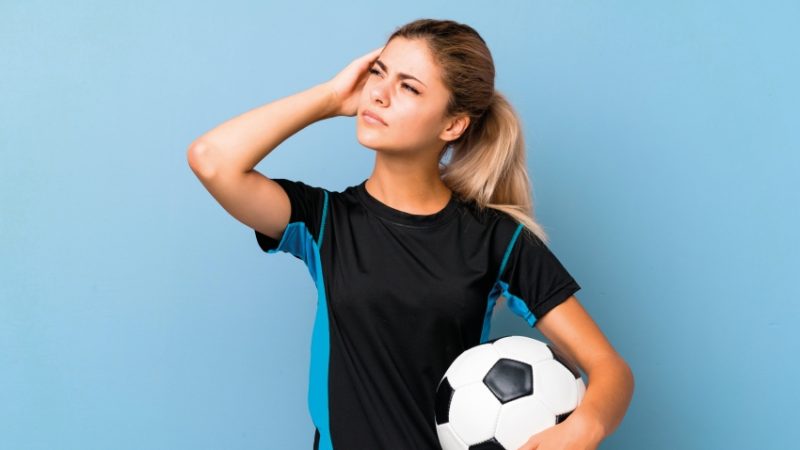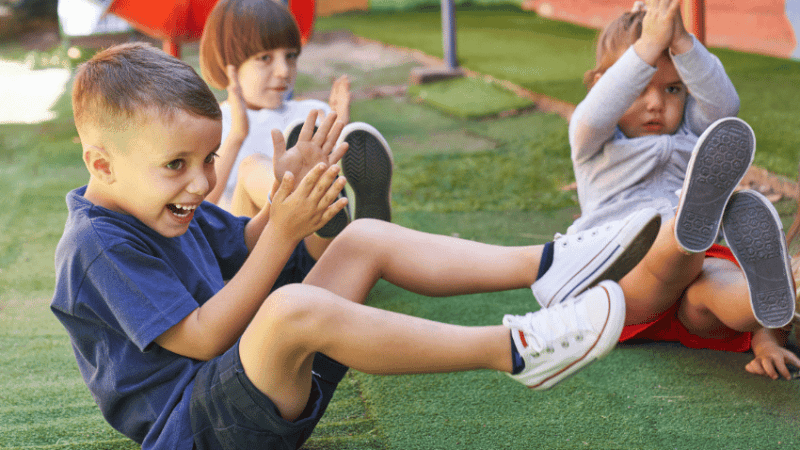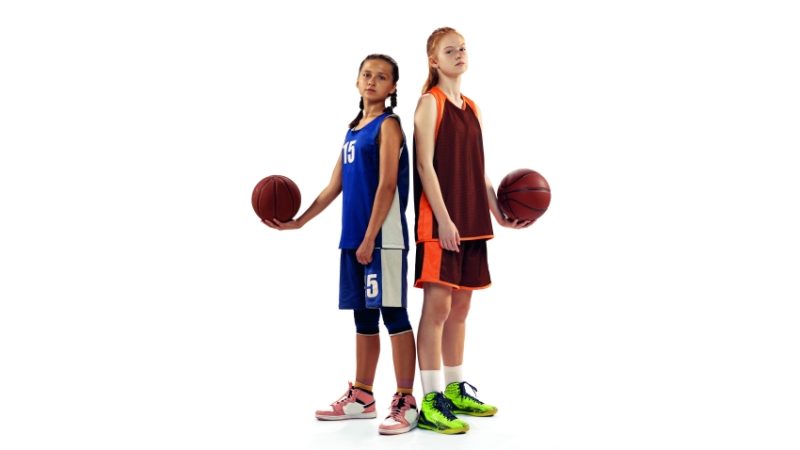Winning isn’t everything – Why PE lessons need ‘meaningful competition’
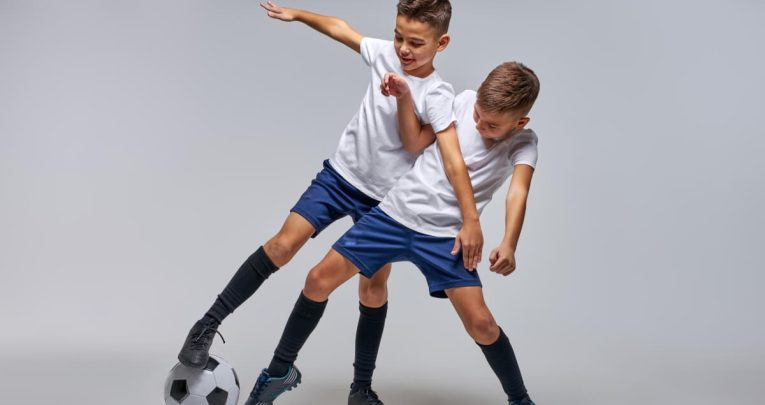
Lee Sullivan looks at how building meaningful competition into PE lessons can deliver plenty of teachable moments, while also making the subject more enjoyable for everyone…

- by Lee Sullivan
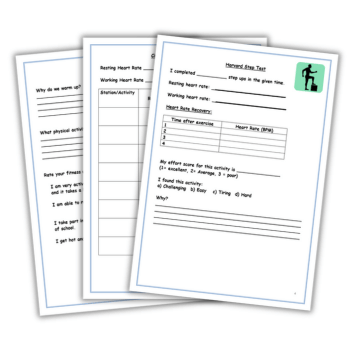
Every Sunday morning, my local park comes alive. The typically empty car park is suddenly packed, and the usually desolate green space full of youngsters with their parents, variously shouting ‘Player on!’ and ‘Shoot!’
Sunday mornings, you see, are when the local football teams play.
During one recent weekend, I stopped for five minutes to watch a men’s game and an under 12s game being played on parallel pitches. The men’s game was a close contest, whilst the youth game was anything but.
On one side I could see grown men swearing at the referee and squaring up to each other, along with plenty of pushing and shoving. On the other were parents shouting when mistakes were made, frequent laughter at the one-sided scoreline and yet more referee-directed swearing.
I was left wondering whether this was the sort of behaviour we should expect from competing sides in team games. Do young people actually enjoy it? Is there anything we can learn from it, and how might it apply within a physical education setting?
A polarising topic
Competition plays a major role in sport, which in turn makes up a significant proportion of PE. For some, competition can induce feelings of excitement and joy, while for others it can incite feelings of dread and anxiety.
It’s therefore worth considering the attitudes young people seem to have towards competition:
- 45% of girls say ‘sport is too competitive’ (‘Changing the Game for Girls’ policy, 2017)
- 30% of girls and 50% of boys indicate that ‘playing to win’ is one of the reasons they enjoy being active in school (Youth Sport Trust, 2018)
- 64% of young people say they would be ‘relieved’, ‘not bothered’ or ‘happier’ if the competition element was removed from sport (Chance to Shine, 2018)
- Only 10% of young people surveyed considered themselves ‘sports enthusiasts’ (Sport England’s ‘Under the Skin Research’, 2014)
While feelings around competition appear to be mixed, I would argue that competition plays an important role within PE lessons, and that there can be little doubt as to the learning potential it can provide.
True competition entails much more than just rules, points, winning and losing. If harnessed effectively, it can dramatically change a student’s experiences in PE, deliver meaningful learning and help nurture a more positive relationship with physical activity.
The 4 R’s
Our key task should be to make competition meaningful for all learners. When planning competition as part of our offering, we should thus observe the 4 R’s:
- Rethink: consider the ‘who’ and the environment
- Reframe: consider process over outcome
- Relevancy: consider conceptual learning
- Role model: consider behaviour
In his ‘Awesome PE in 5 Ways’ blended learning course, the teacher educator and former PE teacher Will Swaithes asserts that considering the needs of the students we teach is of utmost importance. After all, how can we expect to nurture genuine physical literacy if we don’t know what motivates our students to engage in physical activity in the first place?
Recent research suggests that young people value other outcomes in physical competition over simply ‘winning’. These include the enjoyment that comes from participation, the development of skills, time spent with friends and health improvements.
That makes it wise to consider the learning you’re hoping to deliver through a lesson’s competitive elements, and the nature of the students who will be experiencing it. Once you know the ‘who’, you can better meet their ‘why’.
Reframing the experience
Once we know our students’ needs and motivations we can then start to reframe their experiences of competition as something more meaningful.
It’s common practice in schools to enter into full games and matches using rules applied at the elite level of the relevant sport, but we’re not teaching adults or professionals. By adapting the level of competition to better meet our students’ needs, we can ensure the activity is more developmentally appropriate.
That involves focusing on processes, rather than outcomes. Consider the teachable moments that can emerge from competition and deliver powerful learning, while ensuring that any given game remains fun and inclusive, and that everyone has a role to play. Reward positive attitudes and progress over raw performance and ability.
In truth, some of the skills we teach in PE will be wholly irrelevant to certain students. When will most of them ever need to perform a drop shot in badminton outside of a PE lesson, for example? It’s for this reason that some will struggle to see the value in PE, and feel a weak connection with the subject as a result.
In 2021 I published the ‘Physical Education Concept Curriculum for Key Stage 3 and 4’ on the PE Scholar website, with the aim of ensuring that the ‘education’ in PE could remain relevant and meaningful to all students.
The PE Concept Curriculum seeks to change the content of PE lessons, so that there’s less reliance skill-specific learning that will be irrelevant and/or unachievable to most students, and instead more emphasis on learning that is inclusive, relevant and meaningful for all students.
Competition provides a perfect platform from which to deliver conceptual learning that’s relevant to everyone, covering areas such as resilience, teamwork, communication and leadership, to name but a few. By adopting a conceptual learning approach, competition can assume a deeper level of meaning, particularly for those not naturally motivated to compete.
Be a role model
That said, the way others behave during competitive activities is a key factor in whether young people come away with positive or damaging experiences of PE.
PE teachers are expected to encourage and motivate everyone during lessons, but how are the students behaving towards each other? If a pass is misplaced or a point is conceded, do the students encourage each other, or do they publicly call out their peers’ mistakes?
It’s necessary to set the climate and inclusive nature of your PE lessons very carefully. Identify the etiquette, attitudes and best practice you expect from your students, and model these with the class.
The main role model within a competitive PE lesson will, of course, be the teacher. One might expect PE teachers to always set the best possible examples of behaviour to their students, especially during competitive fixtures with other schools. I was interested in finding out how many PE teachers had experienced poor behaviour from their counterparts at other schools during such occasions, and therefore set up a Twitter poll.
Among those who responded, 90% had experienced poor behaviour from other teachers at inter school sports fixtures. Examples included swearing (at both adults and children), cheating, rudeness, anger and even actual fighting.
The thing to remember is that we’re not coaches. None of us are elite professionals who stand to receive bonuses for winning. We are educators. Yes, it feels nice to win, but it’s far more important that we model high standards of sportsmanship, etiquette and respect.
We should congratulate effort and reward contribution. We should play to win and behave to educate.
A Marmite subject
For many young people, PE is a ‘Marmite subject’ they either love or hate. The experiences we deliver now can have an impact on their engagement with physical activity that spans many years. Winning is fun for some, but not what motivates most.
We must rethink and reframe how we present competition in our lessons. We should ensure the behaviour of everyone – including ourselves – is fully in line with this approach.
Competition within a school context should always, first and foremost, serve an educational purpose, It should be used to enhance the learning environment, while encouraging motivation and self-improvement – not destroy it.
Lee Sullivan is a head of PE and author of the book Is PE in Crisis? – Leading Meaningful Change in Physical Education (£18.99); follow him at @Lee_Sullivan85







